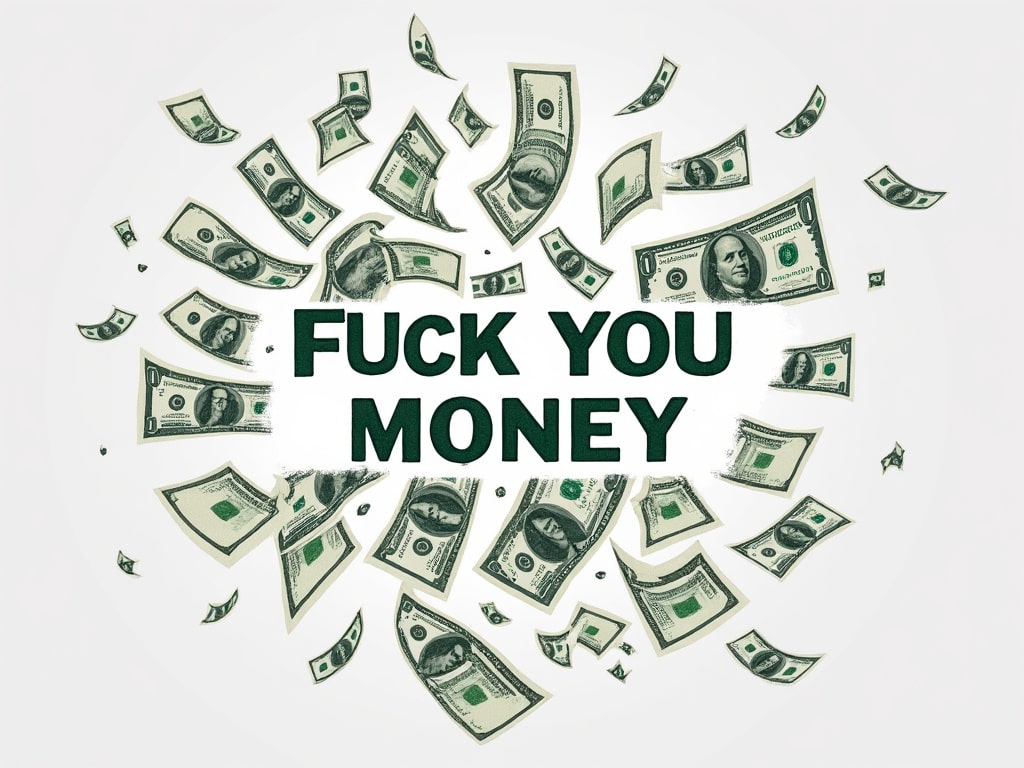TL;DW of the Naval Ravikant & Patrick Williamson Conversation:
Naval and Williamson dive deep into what it means to live a sovereign life—a life defined by personal freedom, not societal scripts. They argue that the internet has unlocked permissionless opportunity, letting anyone build wealth, reputation, and independence without traditional institutions.
Key ideas:
- Sovereignty is being independent—financially, intellectually, emotionally.
- Wealth ≠ money: true wealth means owning assets that work for you and give you time freedom.
- The internet is the ultimate leverage, enabling anyone to scale themselves globally.
- Traditional success (status, credentials) is outdated; real success is living life on your terms.
- Health and peace of mind are essential foundations for freedom.
- You escape the rat race by building or owning something, not by chasing jobs or status.
In short: be intentional, own your time, build leverage, ignore the herd.
Naval Ravikant, the entrepreneur and philosopher behind AngelList, sat down with Chris Williamson, host of the Modern Wisdom podcast, for a three-hour exploration of what it means to live a life of sovereignty in the modern age. Their conversation is a masterclass in rethinking success, wealth, and personal freedom—blending timeless wisdom with cutting-edge insights about the internet, human nature, and the pursuit of happiness. Far from a dry lecture, it’s a dynamic exchange filled with Naval’s signature clarity and Chris’s probing curiosity, offering a roadmap for anyone seeking to escape the herd and design a life on their own terms.
1. Sovereignty: The Ultimate Prize
Naval kicks off by reframing the idea of success not as a trophy case of accolades but as sovereignty—a state of independence that spans financial, intellectual, and emotional realms. “Sovereignty is about being free of the game,” he says, echoing his famous quip, “The reason to win the game is to be free of it.” To him, this means owning your time, your decisions, and your peace of mind, unbound by societal scripts or external validation.
Chris pushes back, asking how one achieves this in a world that constantly demands conformity. Naval’s response is characteristically blunt: “You stop caring about what doesn’t matter. Most people are wasting their lives on status games—fame, likes, approval—that don’t cash out anywhere real.” Sovereignty, then, begins with a radical act of prioritization: deciding what’s worth your attention and letting the rest fall away.
2. The Internet: A Revolution of Permissionless Power
If sovereignty is the goal, the internet is the tool. Naval describes it as the ultimate lever for the individual, a “permissionless opportunity” that obliterates traditional gatekeepers. “You don’t need a degree, a boss, or a bank loan anymore,” he asserts. “You can learn anything, build anything, reach anyone—all from a laptop.”
Chris amplifies this, noting how the internet has shifted leverage from institutions to individuals. “It’s not just about access,” he says. “It’s about scale. One person can now influence millions without a middleman.” Naval nods, adding that this shift is why old metrics of success—titles, credentials, corner offices—are crumbling. The new currency is what you create and how you distribute it.
This isn’t abstract theory. Naval points to his own life—building AngelList, tweeting insights that resonate globally—as proof that the internet rewards those who seize its potential. “Productize yourself,” he advises. “Find what you do naturally, turn it into something scalable, and let the world find you.”
3. Wealth Redefined: Beyond Money to Time
Naval’s distinction between wealth, money, and status is a cornerstone of the discussion. “Money is how we transfer time and wealth,” he explains. “Status is a zero-sum game—someone wins, someone loses. But wealth? Wealth is assets that work for you while you sleep. That’s freedom.”
Chris latches onto this, reflecting on how society fixates on money as the endgame. “We’re taught to grind for a paycheck,” he says, “but you’re saying the real win is owning something that compounds.” Naval agrees: “If you’re trading time for money, you’re still in the rat race. Wealth is about decoupling your effort from your reward.”
Time, not money, emerges as the true measure of wealth. “Attention is the real currency of life,” Naval insists. “Money can’t buy you more hours, but it can buy you control over the ones you have.” This resonates deeply with Chris, who admits to once being trapped in a cycle of chasing dopamine hits—likes, views, applause—only to realize they left him empty.
4. Dismantling the Old Success Myth
The conversation takes a sharp turn as Naval dismantles the traditional success narrative. “The idea that you work 40 years to retire at 65 with a gold watch is a scam,” he says. “Why sacrifice now for a ‘someday’ that might never come?” Chris chuckles, recalling his own shift from a corporate path to podcasting—a move that felt risky but aligned with his authentic self.
Naval doubles down, critiquing credentials as outdated proxies. “They’re just signals,” he says. “Today, you can signal trust directly—through what you build, what you say, how you show up.” He cites Elon Musk as an example: a man who bets on himself repeatedly, unburdened by pride or fear of failure, and wins by creating value at scale.
For Naval, the old game—status, hierarchies, climbing ladders—is a trap. “Status is limited,” he explains. “Wealth is infinite. Focus on creating, not competing.” Chris ties this to his own journey, noting how shedding societal expectations freed him to pursue what truly mattered.
5. The Bedrock of Freedom: Health and Peace
Sovereignty isn’t just about money or leverage—it’s about the foundation beneath it. Naval stresses that health and peace of mind are non-negotiable. “You can’t be free if you’re sick or distracted,” he says. His recipe? Sleep well, move your body, meditate, and guard your attention fiercely. “A low-information diet is as important as a good diet,” he quips.
Chris shares his own evolution, admitting that detaching from social media’s pull was a game-changer. “I used to check my phone obsessively,” he says. “Now I see it as a thief of focus.” Naval nods, adding, “The news drowns you in emergencies you can’t fix. Pick what you care about—something you can actually move—and let the rest go.”
This emphasis on mental clarity ties back to happiness, which Naval sees as a choice. “Happiness isn’t the absence of problems,” he says. “It’s deciding to enjoy the journey, not just the destination.” Chris recalls a story Naval shares about a man in Thailand who chose to be “the happiest person in the world.” “Why not me?” Naval muses. “It’s a frame worth stealing.”
6. Leverage: The Escape Hatch from the Rat Race
Naval’s philosophy of leverage—using code, media, and systems to multiply your impact—takes center stage. “The old way was trading hours for dollars,” he says. “The new way is building something once and letting it pay forever.” Think software, content, or equity in a business—assets that scale without your constant input.
Chris connects this to his podcasting career. “I record an episode once, and it reaches people for years,” he says. “That’s leverage.” Naval smiles, noting, “You’ve escaped competition through authenticity. No one can out-Chris you at being Chris.”
The key, Naval argues, is ownership. “Don’t just work for someone else’s dream,” he says. “Build or own something—a product, a platform, a stake. That’s how you stop running on the treadmill.” For those stuck in jobs, he suggests a gradual shift: learn skills, create side projects, and transition to a life where your outputs outlast your inputs.
7. A Call to Intentional Living
As the conversation winds down, Naval and Chris distill their insights into a clarion call: live intentionally. “Most people drift,” Naval says. “They let others—bosses, culture, algorithms—steer their ship. Sovereignty is taking the wheel.” Chris agrees, emphasizing that this isn’t about instant transformation but persistent experimentation. “Try things, kill what doesn’t work, double down on what does,” he advises.
Naval’s parting wisdom is both simple and profound: “Expect nothing. Define your own game. Play it well.” For him, the sovereign life isn’t about amassing trophies but crafting a story you’re proud to tell—one of freedom, impact, and peace.
The Bigger Picture
What makes this dialogue stand out is its blend of practicality and philosophy. Naval doesn’t just preach; he dissects—breaking down complex ideas into actionable truths. Chris, meanwhile, grounds it with his own lived experience, making it relatable to anyone who’s ever felt trapped by the system.
Their message is clear: the tools for sovereignty are here—internet access, knowledge, leverage—but the mindset shift is up to you. In an era of noise and distraction, they offer a quiet rebellion: ignore the herd, own your time, build your future. It’s not just a conversation—it’s a blueprint for the modern sovereign.

